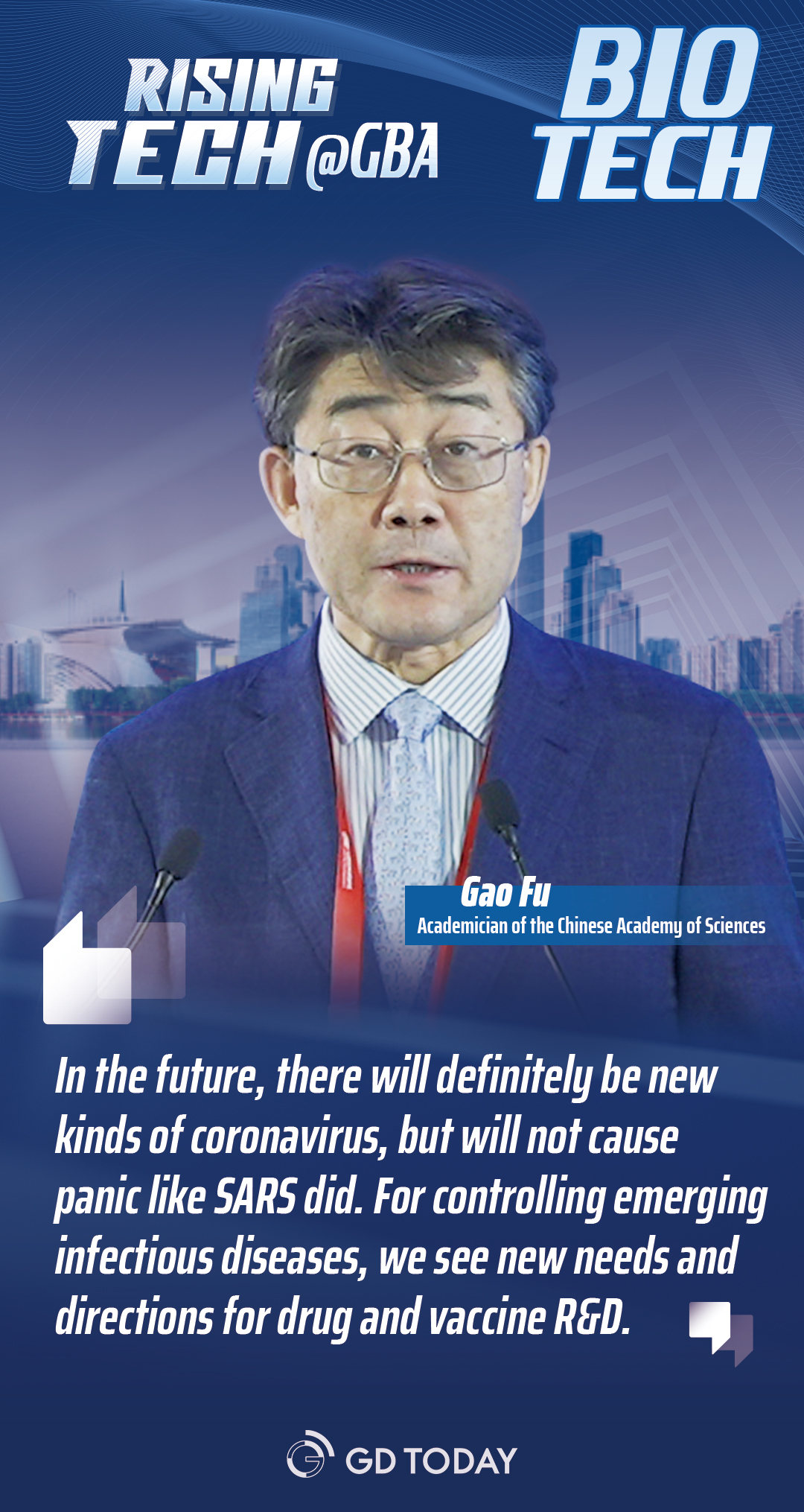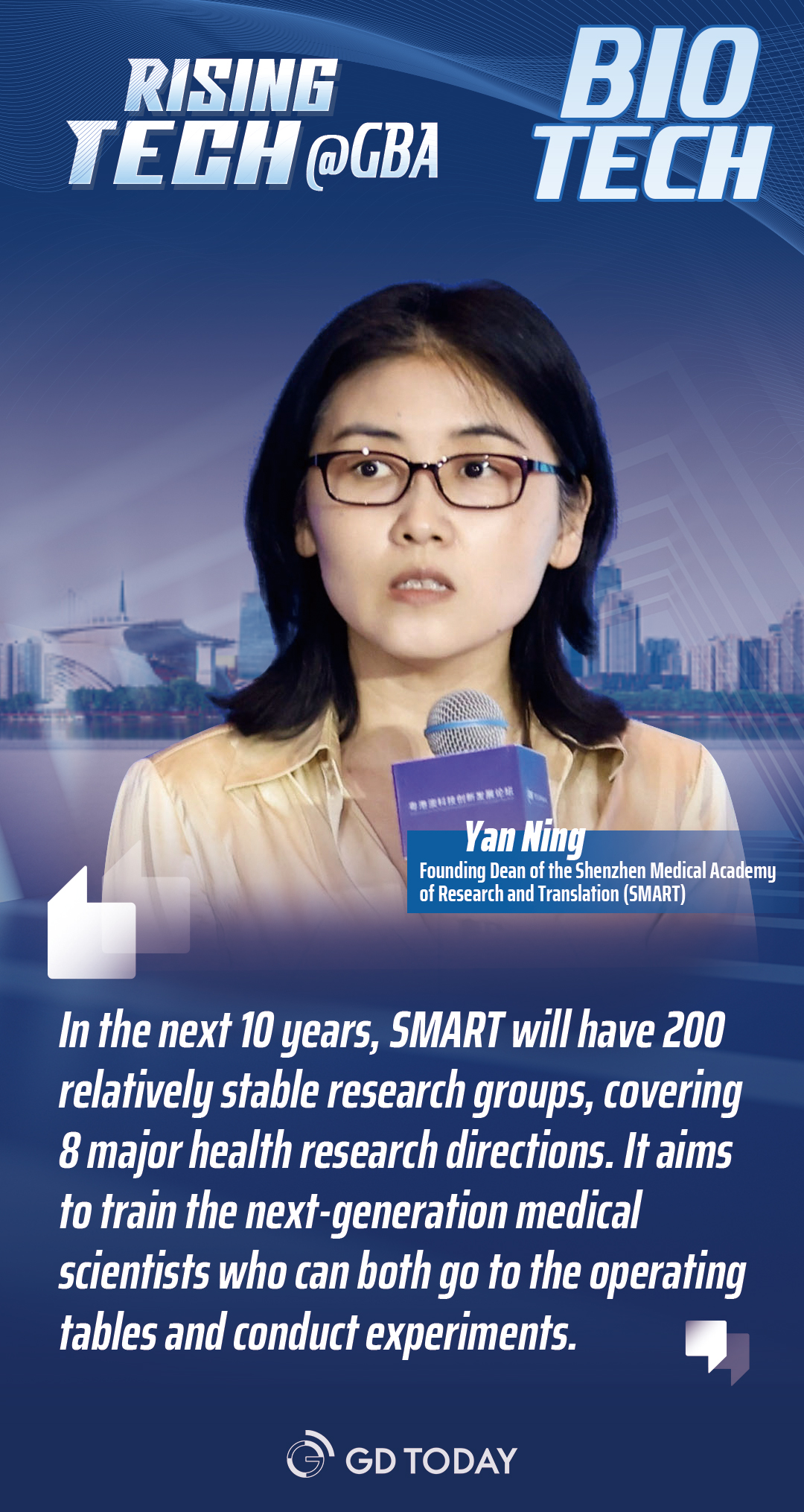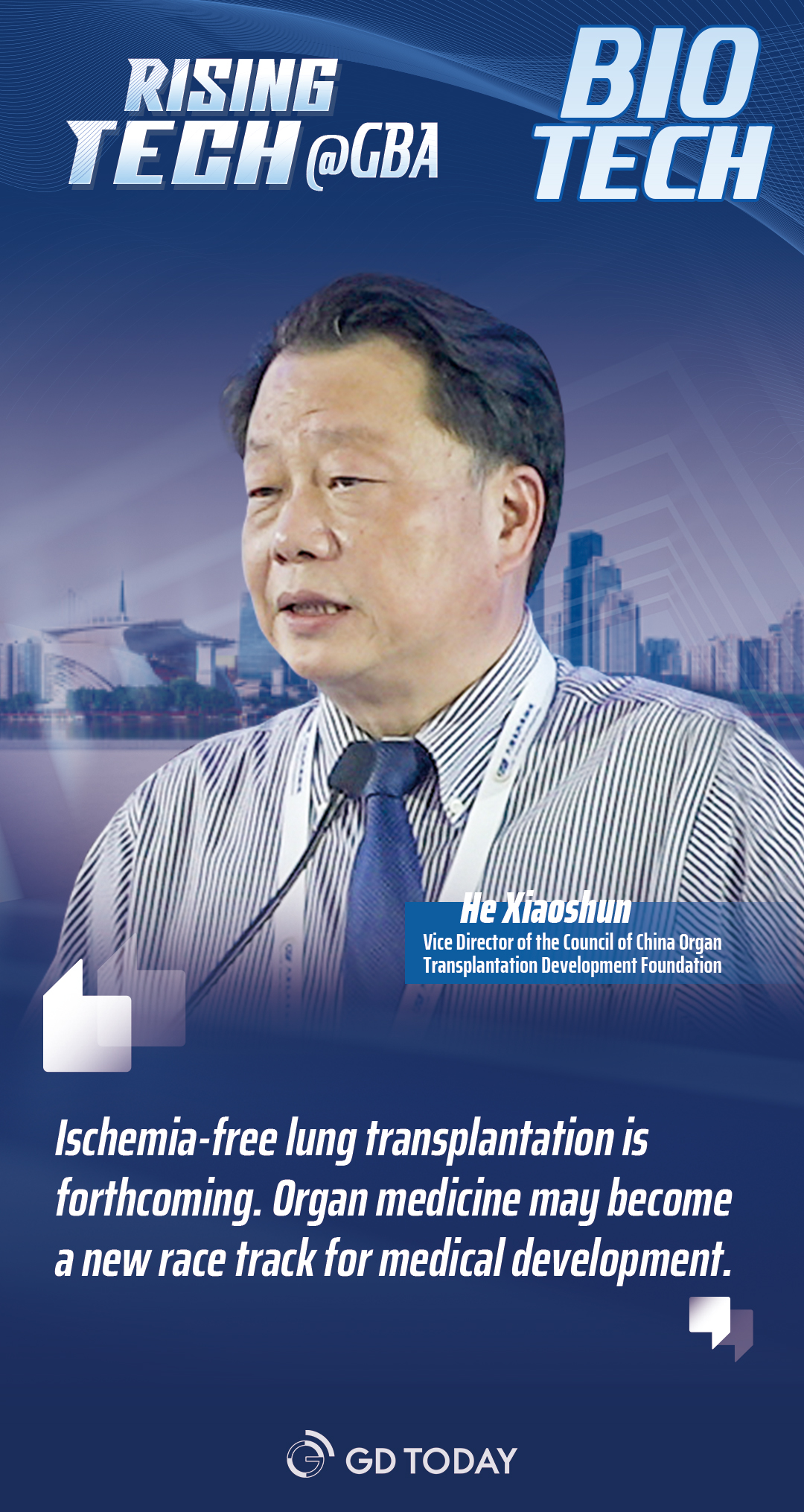Leading researchers and experts gathered at a sub-forum on biotechnology at the recent Greater Bay Area Science Forum to discuss the most recent research findings and look into potential collaborations in the Guangdong-Hong Kong-Macao Greater Bay Area (GBA).
Jin Li, an Academician of the Chinese Academy of Sciences, said, “As one of the regions with the strongest driving force and innovation vitality in China and even the global economy, the GBA is undertaking a key role in exploring model innovation, leading industrial upgrading, and pioneering scientific and technological innovation.”

China’s renowned respiratory disease expert Zhong Nanshan shared good news regarding vaccines targeting the XBB variant. He revealed that two vaccines have been preliminarily approved in China, and three or four more will be approved soon.
Zhong also emphasized the significance of collaborative efforts.
With the Hetao Branch of the Guangzhou Laboratory Testing and Evaluation Center as an example, in October 2022, its construction was completed and put into use within one month. This accelerates the R&D of vaccine technology by integrating resources in the GBA, supporting the prevention and control of infectious diseases and ensuring public health safety.

Gao Fu, an academician of the Chinese Academy of Sciences, said, “In the future, there will definitely be new kinds of coronavirus, but they will not cause panic like SARS did.” And for controlling emerging infectious diseases, Gao sees new needs and directions for drug and vaccine R&D.
In Gao’s view, “A good vaccine should be safe, effective and controllable. Overall, the application of mRNA in hereditary diseases, tumours and autoimmune diseases will be a direction. At the forum, he called on the society to pay attention to the new mRNA technology, saying that it will bring about revolutionary changes in biomedicine.

On May 20, Yan Ning, Founding Dean of the Shenzhen Medical Academy of Research and Translation (SMART), shared her vision for the future of the academy in the session on Sci-Tech Innovation and Development in Guangdong, Hong Kong and Macao. “In the next 10 years, SMART will have 200 relatively stable research groups, covering eight major health research directions.” Yan stressed that SMART vows to train medical scientists who can both perform surgeries and conduct experiments.

In terms of major breakthroughs in biomedicine and healthcare, He Xiaoshun, Vice Director of the Council of China Organ Transplantation Development Foundation, revealed that following ischemia-free liver, kidney and heart transplantation over the past few years, ischemia-free lung transplantation is very promising. He noted that organ medicine may become a new race track for medical development.
Reporter | Hannah, Li Fuying (intern)
Poster | Mia
Photo | Qin Shaolong
Editor | Wing, Jasmine, James
















